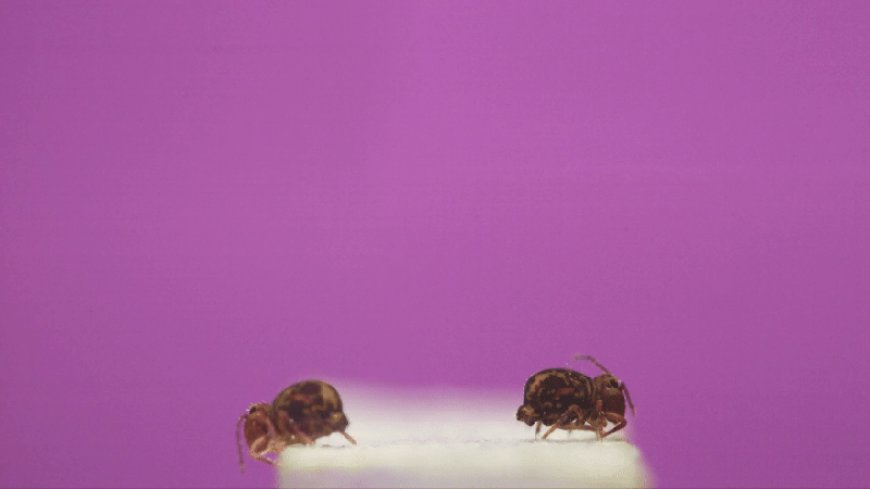Here’s how an arthropod pulls off the world’s fastest backflip
While airborne, globular springtails can reach a spin rate of 368 rotations per second, high-speed camera footage shows.

Springtails can reach a spin rate of 368 rotations per 2nd in the blink of a watch
Backflipping arthropods is called globular springtails can vault themselves up to 60 millimeters excessive and spin up to 29 activities in the blink of a watch. Two springtails jump off a platform in a lab in this excessive-pace camera images.
A. Smith

Cross over, Simone Biles. Nature’s gold medalist for backflips is a millimeter-tall arthropod that should barely straddle the tip of a pencil.
In spite of its dimension, the globular springtail (Dicyrtomina minuta) can vault itself 60 mm in the air, spinning at a rate as quickly as 368 activities per 2nd, researchers file August 29 in Integrative Organismal Biology. Blink and you’ll pass over this great-flipper, even but, as its jump lasts simply 161 milliseconds, on steady.
“Nothing on Earth does a backflip speedy than a globular springtail,” says biologist Adrian Smith of North Carolina Country Collage in Raleigh. “They’re pinnacle notch, on the replacement hand additionally day-to-day.” The arthropods that Smith utilized in the analyze about “are reasonably from my outdoor,” he says.
Globular springtails jump so quickly that they traditionally appear to be to very traditionally vanish, Smith says, a idea trick for evading predators. To divulge the secrets of the arthropods’ get away acrobatics, he and biomechanist Jacob Harrison of Georgia Tech in Atlanta analyzed excessive-pace images of better than a dozen bugs from liftoff to landing.
Liftoff starts off with a thump, as the springtail lets loose a springlike appendage is called the furca from its underbelly (SN: Eleven/7/22). That thump propels the arthropods backward as quickly as 1.5 meters per 2nd, on steady, the researchers determined. Even as airborne, the globs spin in all areas from 14 to 29 activities.
Some flights supply up so much decrease than gracefully, with springtails crashing lower again to Earth and bouncing about except they come to a supply up. Further at times, the bugs stuck the landing by deploying a sticky tube always used for grooming, the team determined. “It’s a mode of anchor that draws them to their feet a good way to get on with their day,” Smith says.
“We now and as soon as extra get suggested that the good exciting components of nature are fossilized in the ground or hidden in a tropical rainforest somewhere,” Smith says. To him, these springtails display that day-to-day organisms are pulling off good feats all round us, we simply should appear to be.
Further Stories from Science News on Animals
What's Your Reaction?



























































